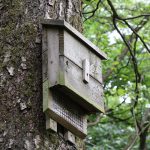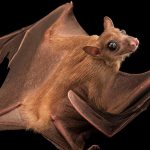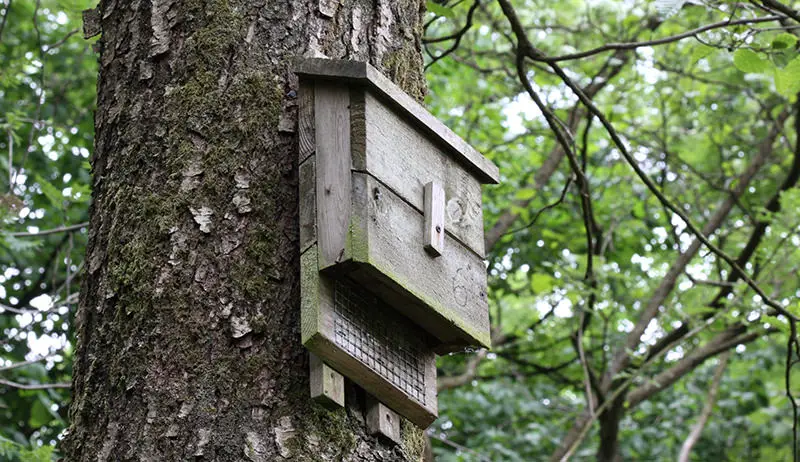Dragonflies and bats are natural predators that eat mosquitoes to control their population. Mosquitoes are pesky insects that not only cause annoyance with their bites, but also pose a health risk as carriers of diseases like malaria, dengue fever, and zika virus.
Fortunately, there are natural predators that help keep their population in check. Dragonflies, with their swift flying capabilities and voracious appetite, are highly effective mosquito hunters. They feed on mosquitoes during their larval stage in water bodies and continue to prey on adult mosquitoes as well.
Bats are another beneficial predator that consume large quantities of mosquitoes, making them a valuable asset in mosquito control. By taking advantage of these natural predators, we can help reduce the prevalence of mosquitoes and minimize the risks associated with their presence.

Credit: www.nytimes.com
Mosquito Predators: An Introduction
Discover the natural mosquito predators that help keep these pesky insects at bay. From dragonflies to bats, explore the fascinating world of mosquito hunters in this informative introduction.
Mosquitoes are not only a nuisance with their persistent buzzing and itchy bites, but they are also notorious for spreading diseases such as malaria, dengue fever, and zika virus. It is essential to control mosquito populations to protect our health and well-being.
While chemical control methods like pesticides can be effective, they often come with their own set of environmental concerns. That’s where natural predators of mosquitoes come in. These remarkable organisms play a crucial role in keeping mosquito populations in check.
In this section, we will explore the importance of mosquito control and the role of natural predators in maintaining a balanced ecosystem.
Importance Of Mosquito Control
- Mosquito-borne diseases: Mosquitoes are carriers of several harmful diseases that affect both humans and animals. By controlling mosquito populations, we can significantly reduce the spread of these diseases, protecting our communities and promoting public health.
- Economic impact: Mosquito-borne diseases have a substantial economic impact, affecting tourism, agriculture, and overall productivity. Implementing effective mosquito control measures can help minimize these economic losses and ensure the smooth functioning of various industries.
The Role Of Natural Predators
- Dragonflies and damselflies: These fascinating insects are well-known mosquito predators. With their agile flight and excellent hunting skills, dragonflies and damselflies can devour hundreds of mosquitoes in a single day. Their presence in an area can make a significant difference in mosquito population control.
- Birds: Many bird species feed on mosquitoes and their larvae, including swallows, purple martins, and certain species of bats. These avian predators actively seek out mosquitoes as a part of their diet, helping to keep their populations in check.
- Fish: Some fish species, such as mosquito fish (gambusia affinis) and bluegill sunfish, consume mosquito larvae in standing water bodies. By introducing these fish into areas with mosquito problems, we can effectively control mosquito breeding and reduce adult populations.
- Predatory insects: Apart from dragonflies and damselflies, other insects play a role in controlling mosquito populations. Predatory insects like certain beetle species, wasps, and ants prey on mosquito larvae, effectively limiting their numbers.
- Amphibians: Frogs, toads, and tadpoles also join the fight against mosquitoes. These amphibians often rely on mosquitoes and their larvae as food sources, making them valuable allies in natural mosquito control.
By harnessing the power of these natural predators, we can achieve sustainable mosquito control without relying solely on chemical interventions. However, it is important to strike a balance and ensure that the presence of these predators does not disrupt the overall ecosystem dynamics.
In the following sections, we will dive deeper into the fascinating world of these mosquito predators and explore their behavior, habitats, and other unique characteristics. So, let’s embark on an exciting journey into the world of nature’s mosquito hunters!
Dragonflies: The Voracious Hunters
Dragonflies are voracious hunters known for their appetite for mosquitoes. They play a crucial role in controlling mosquito populations naturally, making them the ultimate insect predator for these pesky bloodsuckers.
Dragonflies are known as voracious hunters and play a vital role in controlling mosquito populations. With their impressive flying abilities and predatory instincts, dragonflies have developed a reputation for being efficient mosquito predators. Let’s take a closer look at their characteristics, behavior, and how they contribute to keeping mosquito populations in check.
Dragonflies As Mosquito Predators:
- Dragonflies are agile and swift flyers, capable of reaching impressive speeds of up to 35 miles per hour. This enables them to catch mosquitoes in mid-flight, making them formidable predators.
- These insects have excellent eyesight, with their large compound eyes allowing them to detect the quick movements of their prey. Their wide field of vision helps them spot mosquitoes from afar and track their flight patterns.
- Dragonflies have distinct elongated bodies and membranous wings, which provide them with exceptional maneuverability. This physical adaptation enables them to perform swift aerial maneuvers, allowing them to hunt down mosquitoes effectively.
Characteristics And Behavior:
- Dragonflies have two pairs of wings, allowing them to fly in various directions effortlessly. This unique wing structure gives them the ability to hover, glide, and change direction rapidly, making them exceptional aerial hunters.
- These fascinating creatures have a lifespan that can range from a few weeks to a few months, depending on specific species. During this time, they go through a complete metamorphosis, transitioning from aquatic nymphs to adult dragonflies.
- Unlike mosquitoes, dragonflies do not pose a threat to humans. They do not bite or transmit diseases. Instead, they focus their hunting efforts on preying on smaller insects, including mosquitoes.
- Dragonflies are often found near bodies of water, such as ponds, lakes, and marshes, as water serves as their habitat for reproduction and survival. These areas provide an abundant supply of both prey and suitable conditions for their eggs to develop.
How Dragonflies Control Mosquito Populations:
- As voracious mosquito predators, dragonflies have a significant impact on controlling mosquito populations naturally. By hunting mosquitoes, they help to mitigate the nuisance and potential health risks associated with these bloodsucking insects.
- Dragonflies are known to consume vast numbers of mosquitoes and other flying insects on a daily basis. Their insatiable appetite, combined with their hunting prowess, makes them highly efficient at keeping mosquito populations in check.
- By reducing the number of mosquitoes, dragonflies indirectly contribute to minimizing the spread of mosquito-borne diseases, such as malaria, dengue fever, and zika virus. Their role as natural predators helps to maintain a balance in the ecosystem and support overall biodiversity.
Dragonflies are valuable allies in the ongoing battle against mosquitoes. Their unique characteristics, impressive hunting abilities, and inherent role in controlling mosquito populations make them an essential part of the ecosystem. Next time you encounter a dragonfly darting through the air, remember that it’s not just a beautiful creature but also a dedicated mosquito hunter.
Bats: The Flying Mosquito Hunters
Bats, the efficient hunters of the sky, are known for their appetite for mosquitoes. These winged creatures play a crucial role in balancing ecosystems as they feast on the pesky insects, keeping their populations in check.
Bats are remarkable creatures that play a vital role in the ecosystem by serving as natural mosquito predators. These winged mammals are not only fascinating but also incredibly efficient hunters, capable of devouring thousands of mosquitoes in a single night.
If you’ve ever wondered what insect eats mosquitoes, look no further than the bat. In this section, we will explore the different bat species that feed on mosquitoes and the benefits of attracting bats to your yard.
Bats As Natural Mosquito Predators
- Bats are well-known for their ability to consume a large number of insects, including mosquitoes, as part of their diet.
- These flying mammals use echolocation to locate small flying insects like mosquitoes in the dark.
- Bats have adapted to be expert hunters, with specialized wings and agility that allow them to catch mosquitoes mid-flight.
- By feeding on mosquitoes, bats help control their population, reducing the nuisance and health risks they pose to humans.
Bat Species That Feed On Mosquitoes
Not all bat species have a taste for mosquitoes, but several are known to include them in their diet. Here are some of the bat species that actively feed on these pesky insects:
- Little brown bat (myotis lucifugus): This common bat species can consume up to 600 mosquitoes in just one hour, making them an excellent natural form of mosquito control.
- Big brown bat (eptesicus fuscus): With a broad diet that includes mosquitoes, moths, and beetles, these bats are highly effective at reducing mosquito populations.
- Eastern red bat (lasiurus borealis): While they primarily eat moths and beetles, these bats also consume mosquitoes, making them beneficial to have around.
- Brazilian free-tailed bat (tadarida brasiliensis): Found in warmer regions, this species particularly targets mosquitoes and other flying insects for sustenance.
Benefits Of Attracting Bats To Your Yard
Attracting bats to your yard not only provides you with a natural mosquito control method but also benefits the bats themselves. Here are some advantages of having bats in your vicinity:
- Reduced mosquito population: By attracting bats, you can significantly decrease the number of mosquitoes and other flying insects around your property.
- Sustainable pest control: Bats offer a pesticide-free alternative to managing mosquito populations, contributing to a more environmentally friendly approach.
- Pollination support: Bats also help with pollination, especially for night-blooming plants, aiding in flower reproduction and the overall health of your garden.
- Educational opportunity: Observing bats in your yard can be a great educational experience, teaching both children and adults about the importance of these misunderstood creatures.
Bats are natural mosquito predators that can help control mosquito populations while providing various benefits to your yard. By attracting bats to your property, you foster a mutually beneficial relationship that promotes both biodiversity and a more enjoyable outdoor environment.
So, why not consider creating a bat-friendly habitat and enjoy the wonders of these amazing flying mosquito hunters?
Birds: Nature’S Mosquito Controllers
Birds are natural mosquito controllers, feasting on these pesky insects for a meal. Their diet makes them effective allies in reducing mosquito populations in the environment.
Birds play a crucial role in controlling mosquito populations. These feathered creatures are not only a delight to watch but also natural predators of mosquitoes. Let’s explore the birds that eat mosquitoes, their behaviors, and how we can create bird-friendly habitats for effective mosquito control.
Birds That Eat Mosquitoes:
- Purple martin: Known for its aerial acrobatics, the purple martin consumes large numbers of mosquitoes, flies, and other insects while on the wing.
- Swallows: These agile birds feed on flying insects, including mosquitoes, catching them in mid-air with their specialized beaks.
- Wrens: These little birds have a voracious appetite for insects, including mosquitoes and their larvae, making them excellent natural mosquito controllers.
- Warblers: Many species of warblers, such as the yellow warbler, feed on insects, including mosquitoes, during their migratory journeys.
Mosquito-Consuming Bird Behaviors:
- Foraging: Mosquito-eating birds actively search for insects, including mosquitoes, in various habitats, such as gardens, wetlands, and forests.
- Aerial hunting: Birds like swallows are adept at catching mosquitoes while flying, utilizing their agile flight and sharp vision to target and capture these pests in mid-air.
- Nesting near water bodies: Some bird species, like purple martins, build their nests near water bodies to take advantage of the abundant mosquito populations found in such areas.
Creating Bird-Friendly Habitats For Mosquito Control:
- Increase green spaces: Planting trees and native shrubs in your yard or community park provides shelter and foraging opportunities for mosquito-consuming birds.
- Provide birdhouses: Installing birdhouses specifically designed for purple martins or other mosquito-eating birds encourages them to nest in your area, reducing mosquito populations.
- Water features: Creating small bird-friendly water sources, like birdbaths or shallow ponds, attracts insect-eating birds while providing them with a hydration spot.
- Avoid chemical pesticides: Minimize the use of chemical pesticides, as they can harm not only mosquitoes but also the birds and other beneficial insects that rely on them for food.
By promoting bird-friendly habitats and attracting mosquito-eating birds, we can establish a natural defense against these pesky bloodsuckers. With their remarkable abilities and innate insectivorous instincts, birds truly are nature’s mosquito controllers.
Fish: Aquatic Mosquito Terminators
Fish are natural predators of mosquitoes, making them excellent aquatic mosquito terminators. By feeding on mosquito larvae, fish help control mosquito populations, reducing the risk of insect-borne diseases in the process.
Mosquitoes can be a pesky annoyance, especially during the warmer months. But did you know that there are natural predators that can help keep their population in check? Fish are one such predator, renowned for their ability to consume mosquito larvae and help control their numbers.
In this section, we will explore the different fish species that feed on mosquito larvae, the practice of fish farming for mosquito control, and how using fish can effectively manage mosquito populations in ponds and lakes.
Fish Species That Feed On Mosquito Larvae:
- Gambusia affinis (mosquitofish): These small, omnivorous fish are incredibly efficient at consuming mosquito larvae. They have been used for decades in mosquito control programs due to their voracious appetite for mosquitoes and their larvae.
- Bluegill (lepomis macrochirus): Besides being a popular target for recreational fishing, bluegill also play a crucial role in mosquito control. Their diet includes mosquito larvae, making them a valuable asset in managing mosquito populations in bodies of water.
- Goldfish (carassius auratus): Known for their vibrant colors and calm demeanor, goldfish are also capable of devouring mosquito larvae. They are often introduced into ponds and water features to keep mosquito populations in check.
Fish Farming For Mosquito Control:
Fish farming, or pisciculture, is not only beneficial for producing food but also for mosquito control. By creating fish farms specifically for mosquito control purposes, it is possible to cultivate fish populations that can effectively keep mosquito populations at bay.
Some common fish species used in fish farming for mosquito control include:
- Tilapia (oreochromis spp. ): These popular freshwater fish are not only delicious but also play a crucial role in mosquito control. They feed on mosquito larvae and are known to thrive in ponds and lakes.
- Catfish (siluriformes): These bottom-dwelling fish are commonly farmed for their meat, but they also contribute to mosquito control efforts. Catfish are known to consume mosquito larvae, making them an excellent addition to fish farms.
Using Fish To Control Mosquitoes In Ponds And Lakes:
- Natural ecological balance: Introducing fish species that feed on mosquito larvae into ponds and lakes can restore the natural ecological balance. Mosquito populations can be significantly reduced or eliminated, as fish consume both adult mosquitoes and their larvae.
- Low ecological impact: Unlike chemical insecticides, using fish for mosquito control has a minimal impact on the environment. Fish farming promotes the use of natural predators and minimizes the need for harmful chemicals, ensuring a safer and more sustainable solution.
- Cost-effective approach: Implementing fish-based mosquito control strategies can be a cost-effective alternative to other methods. Once established, fish populations can sustain themselves, reducing the need for repeated treatments or interventions.
By harnessing the natural predatory behaviors of fish species that feed on mosquito larvae, we can effectively mitigate the annoyance and potential health risks associated with mosquitoes. Whether it’s through fish farming or introducing fish into existing bodies of water, using fish as aquatic mosquito terminators offers a natural and eco-friendly solution to combat mosquito populations.
Natural Mosquito Predators: Utilizing Nature’S Army
Discover the secret allies in the battle against mosquitoes – natural insect predators. These voracious hunters feed on mosquitoes, offering an eco-friendly solution to minimize their presence without harmful chemicals.
Mosquitoes are pesky insects that can ruin a perfectly enjoyable outdoor experience. While mosquito repellents and traps are commonly used, there’s a more natural and sustainable approach to controlling these bloodsuckers – harnessing the power of nature’s army. By attracting and supporting mosquito predators in your garden, you can create a balanced ecosystem that helps keep these pests at bay without relying on chemicals or harmful methods.
We will explore the various natural mosquito predators and how you can leverage their abilities to control mosquito populations effectively.
Creating A Balanced Ecosystem For Mosquito Control:
- Introducing a diverse range of plants in your garden can create an environment that attracts beneficial insects, which in turn prey on mosquitoes. Native plants and wildflowers are particularly helpful in this regard.
- Providing ample water sources, such as bird baths or small ponds, can encourage predators like dragonflies and aquatic insects. These insects lay their eggs in water, and their larvae are voracious mosquito eaters.
- Avoiding chemical pesticides and insecticides can preserve the natural food chain and prevent harm to beneficial insects.
- Maintaining proper landscaping practices, like pruning shrubs and keeping the lawn trimmed, reduces mosquito breeding grounds while allowing mosquito predators to move freely.
Integrated Pest Management Strategies:
- Implementing a strategy known as integrated pest management (ipm) can be an effective way to control mosquito populations without relying solely on predators. Ipm involves combining multiple approaches, such as physical barriers and monitoring, to minimize pest damage while maintaining ecological balance.
- Installing mosquito netting on windows and doorways can keep mosquitoes out while allowing air circulation.
- Using mosquito repellent plants, such as citronella, catnip, and lavender, can act as natural deterrents to mosquitoes.
- Removing any standing water from your property helps eliminate mosquito breeding sites and disrupt their life cycle.
Attracting And Supporting Mosquito Predators In Your Garden:
- Incorporating flowering plants like marigolds, sunflowers, and daisies can attract predatory insects like ladybugs, lacewings, and predatory wasps. These insects feast on mosquito eggs and larvae.
- Providing suitable habitat for bats can be a natural and efficient way to control mosquito populations. Bats consume large numbers of mosquitoes during their nightly hunts. Installing bat houses or leaving dead trees standing can offer roosting spots for these remarkable creatures.
- Creating a diverse range of vegetation and sheltered areas, such as bushes or ground covers, can attract birds that feed on mosquitoes. Species like swallows, martins, and warblers are known to have a mosquito-rich diet.
By following these strategies and capitalizing on nature’s army, you can create a mosquito-hostile environment while promoting biodiversity in your garden. Embracing these natural mosquito predators not only benefits your immediate surroundings but also contributes to a healthier and more sustainable ecosystem.
So, say goodbye to chemical-laden solutions and let nature’s defenders take charge of your mosquito control efforts.
Frequently Asked Questions For What Insect Eats Mosquitoes
What Are Natural Predators Of Mosquitoes?
Natural predators of mosquitoes include birds, bats, dragonflies, frogs, and fish. Birds feed on adult mosquitoes and their larvae, while bats consume large quantities of mosquitoes during their nightly hunts. Dragonflies are known to be skilled mosquito hunters, with their larvae preying on mosquito larvae in water bodies.
Frogs also play a role in controlling mosquito populations as they feed on both adults and larvae. Certain types of fish, like gambusia and goldfish, are effective in eating mosquito larvae in water sources. These natural predators help to reduce the number of mosquitoes in an area, acting as a natural form of pest control.
Birds, bats, dragonflies, frogs, and fish all contribute to maintaining a balanced ecosystem by keeping mosquito populations in check.
What Animal Are Mosquitoes Afraid Of?
Mosquitoes are afraid of spiders. Spiders are natural predators of mosquitoes and help control their population.
Do Ladybugs Eat Mosquitoes?
Yes, ladybugs eat mosquitoes. Ladybugs are beneficial insects that help control pest populations in gardens and yards. They are natural predators of many garden pests, including mosquitoes. Ladybugs feed on aphids, mites, and other small insects, including mosquito larvae. They are attracted to these pests by the chemicals they release and consume them as a food source.
Ladybugs are voracious eaters and can consume large numbers of mosquitoes and their larvae, helping to reduce their population. By releasing ladybugs in your garden, you can encourage a natural and effective control of mosquitoes and other pests without the need for harmful pesticides.
So, introducing ladybugs into your garden can be a great way to minimize mosquito problems and maintain a healthy ecosystem.
What Do Mosquitoes Hate?
Mosquitoes hate certain scents and objects that repel them. These include citronella, garlic, lavender, eucalyptus, and peppermint. Wearing light-colored clothes and using mosquito repellents containing deet or picaridin can also help keep mosquitoes away. Remove stagnant water sources, where mosquitoes breed, from your surroundings.
Using fans or mosquito nets, sealing cracks and openings, and avoiding outdoor activities at dusk and dawn can also deter mosquitoes.
Conclusion
The presence of insects that eat mosquitoes is a beneficial and natural way to control their population. By understanding the different species that prey on these pests, we can learn how to encourage their presence in our surroundings. Dragonflies, damselflies, bats, birds, and certain fish species emerge as effective predators, helping to reduce the nuisance and health risks associated with mosquitoes.
To attract these insect hunters, we can create a welcoming environment by providing suitable habitats and food sources. This may include maintaining a diverse garden with native plants and water sources, installing bat boxes, or creating a pond. By promoting natural predator-prey relationships, we can achieve a balanced ecosystem that lessens our reliance on chemical mosquito control methods.
So, let’s embrace the power of these tiny insect allies and invite them into our lives to help keep mosquito populations in check.

“My name is Leo Jacob, and I hold a Bachelor of Science degree with Honors in Applied Environmental Science and Sustainability from the University of the West of Scotland. Since childhood, I’ve been passionate about living an eco-friendly life. After completing my studies, I dedicated myself to finding simple ways to lead a more environmentally conscious lifestyle. I launched ecolifely.com to share my educational background and practical experiences with everyone, hoping to inspire others to join me in creating a greener, more sustainable world.”




